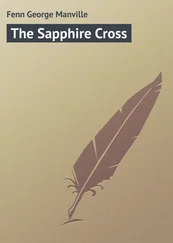George Fenn - The Parson O' Dumford
Здесь есть возможность читать онлайн «George Fenn - The Parson O' Dumford» — ознакомительный отрывок электронной книги совершенно бесплатно, а после прочтения отрывка купить полную версию. В некоторых случаях можно слушать аудио, скачать через торрент в формате fb2 и присутствует краткое содержание. ISBN: , Издательство: Иностранный паблик, Жанр: foreign_prose, на английском языке. Описание произведения, (предисловие) а так же отзывы посетителей доступны на портале библиотеки ЛибКат.
- Название:The Parson O' Dumford
- Автор:
- Издательство:Иностранный паблик
- Жанр:
- Год:неизвестен
- ISBN:http://www.gutenberg.org/ebooks/34141
- Рейтинг книги:5 / 5. Голосов: 1
-
Избранное:Добавить в избранное
- Отзывы:
-
Ваша оценка:
- 100
- 1
- 2
- 3
- 4
- 5
The Parson O' Dumford: краткое содержание, описание и аннотация
Предлагаем к чтению аннотацию, описание, краткое содержание или предисловие (зависит от того, что написал сам автор книги «The Parson O' Dumford»). Если вы не нашли необходимую информацию о книге — напишите в комментариях, мы постараемся отыскать её.
The Parson O' Dumford — читать онлайн ознакомительный отрывок
Ниже представлен текст книги, разбитый по страницам. Система сохранения места последней прочитанной страницы, позволяет с удобством читать онлайн бесплатно книгу «The Parson O' Dumford», без необходимости каждый раз заново искать на чём Вы остановились. Поставьте закладку, и сможете в любой момент перейти на страницу, на которой закончили чтение.
Интервал:
Закладка:
A stranger would have tripped and fallen a dozen times over the metal-cumbered floor; but every inch and every piece of machinery was so familiar to the foreman that he could have gone about the place blindfold, even as he did once or twice in the dark when he closed his bull’s-eye lantern, thinking he heard a noise.
All seemed right in this workshop, so he descended to the foundry, going over it and amongst the furnaces, now growing cold.
Then he threaded his way amongst the sunken moulds for castings; looked up at the cranes, paused before the massive crucibles used for melting bell-metal or ingots for the great steel bells, and ended by stopping again to listen.
“I’ll sweer I heerd a noise,” he muttered, taking a short constable’s staff from his pocket, and twisting its stout leather thong round his wrist. “It will be strange and awkward for somebody if I find him playing any of his tricks here.”
He went cautiously on tip-toe in the direction from which the noise had seemed to come, going up a short ladder to a raised portion of the foundry, which formed an open floor where lighter work was done.
He advanced very cautiously in the dark, holding his staff ready to deliver a blow, or guard his head, and the next minute there was the sound of some tool being moved on a bench, and then something alighted at his feet, setting up a soft purring and beginning to rub up against his legs.
“Why, Tommy,” he said, “you scar’d me, my boy. It was you, was it? After rats, eh, Tommy? Poor old puss, then.”
He turned on his lantern, took a good look round, and then, apparently satisfied, he pulled out an old-fashioned silver watch and consulted its face.
“Eight o’clock, eh? Why, they’ll think at home that I’m lost.”
As he spoke he made his light play round for a few minutes, and then, apparently satisfied, he put it out, placed the lamp on a shelf, and went out and across the yard to the kind of lodge, where a man was waiting to take the duty of the watchman for the night.
“All raight, Mester Banks?”
“All right, Rolf,” was the reply. “I’ve been all round.”
Directly after the old foreman was on his way homeward, but he had hardly taken a dozen strides down the lane under the wall, before the head of Simeon Slee was cautiously raised above the edge of one of the great crucibles, or melting-pots, and then for a time he remained motionless.
“You’re a clever one, Joe Banks, you are,” he said at last, as he raised himself up and sat on the edge of the great pot. “You can find out everything, yow can; you can trample on the raights of the British wucking-man, and get the independent spirits discharged, eh? But you’re one of the ungodly bitter ones, and you must be smitten wherever you can. Let’s see how the wuck ’ll go on to-morrow.”
The speaker threw his legs over the side, and then paused to dust his trousers and his coat before proceeding further.
“It’s hot lying in hiding there,” he muttered, pulling off his coat and rolling up his sleeves. “I have to toil and moil like a slave for the cause.”
His next proceeding was to open a great clasp knife and try its edge, which was keen as that of a razor; and then, armed with this, and quite as much at home in the works as the foreman, he went about with lithe steps as cautious as a cat, and, cutting through the bands that connected the wheels of the lathes with the great shaft that set them in motion, he dragged them down and piled them together till he had collected a goodly heap.
This was not accomplished all at once, and with ease, for, setting aside the watchfulness with which the task had to be done, and the care to ensure silence, the bands were heavy, hard to cut, and they had to be borne some distance. Altogether it took Sim Slee a good hour’s arduous labour, and he perspired profusely. In fact, it was his habit to take more pains to achieve a bad end than would have sufficed to get a good living twice over.
“Phew! it’s hot,” he muttered in one of his pauses, during which he ran to the nearest door, and listened. “What a slave I am to the cause.”
Then he chuckled and laughed over the mischief he had done, and ended by laboriously dragging all the great leather bands and straps to the uncovered hole of a furnace, down which he dropped them, so that they fell far back from the mouth below, which opened on the stoke-hole; and he knew that the chances were ten to one that if the present heat did not destroy them, a fire would be lit by the careless stokers, and the bands consumed before they were missed, as, if business were resumed on the following day, the firemen would be there long before the ordinary workers.
“Theer,” said Sim, when he had finished, “I wonder what Joe Banks would say now if he knew o’ this?”
He resumed his coat, out of the pocket of which he took a piece of strong line, some fifteen feet long, and walked cautiously, listening the while, towards one of the windows which looked down on the lane, one side of which was formed by the works and the wall of the yard, and from which the little door before mentioned gave access to the proprietor’s private room in the counting-house.
Sim Slee had entered by this window, being a light, active man, and he was about to descend from it, and make his escape by hitching the strong light steel hook attached to the end of his rope to the sill, just as he had entered by throwing it up till it caught, it being so constructed that a sharp wave sent along the slackened rope would set it free. But before descending Sim stood, rope in hand, listening, watched by the cat at a respectable distance, that sage black animal being evidently impressed with the fact that the intruder in the works was wonderfully rat-like in his actions.
Tommy did not approach him, nor yet purr, but crouched there watching while Sim stood with one ear close to the window, then sharply turned his head and thrust it out into the night air, drew it back again as sharply, and then cautiously thrust it out once more, so that unseen he could see and listen to what went on below.
For there were two figures just below the opening, and as Sim listened, holding his breath, one of them exclaimed:
“I won’t, I won’t, Mr Richard, and you’ve no business to ask me.”
“ Mr . Richard,” said the other, reproachfully; “I thought it was to be Dick – your own Dick.”
“Oh, don’t – don’t – don’t talk like that,” sobbed the other. “Oh, I wish I really, really knew whether you meant it all.”
“Meant it all, Daisy! how can you be so cruel, when you know how dearly I love you? But come into the counting-house, and we can sit there and talk.”
“I can’t – I won’t!” said Daisy; “and you know you oughtn’t to ask me, Mr Richard. What would father say if he were to hear of it?”
“Father would only be too pleased,” whispered the young man, “for he believes in me, if you don’t, Daisy. He’d like you to be my own beautiful darling little wife, that I should make a lady.”
“But, do you really, really mean it, Mr Richard?” said Daisy, with a hysterical sob.
“‘Really mean it! Mr Richard!’” said the young fellow, reproachfully. “Oh, Daisy, have you so mean an opinion of me? Do you take me for a contemptible liar?”
“Oh no, no, no,” sobbed the girl; “but they say – I always thought – I believed that you were engaged to Miss Eve.”
“A poor puny thing,” said Richard, in a contemptuous tone; “and besides, she’s my cousin.”
“But she thinks you love her,” said Daisy.
“Poor thing!” laughed Richard.
“And I believe you love her.”
“Indeed I don’t, nor anybody else but you, you beautiful little rosebud. Oh, Daisy, Daisy, how can you be so cruel!”
Читать дальшеИнтервал:
Закладка:
Похожие книги на «The Parson O' Dumford»
Представляем Вашему вниманию похожие книги на «The Parson O' Dumford» списком для выбора. Мы отобрали схожую по названию и смыслу литературу в надежде предоставить читателям больше вариантов отыскать новые, интересные, ещё непрочитанные произведения.
Обсуждение, отзывы о книге «The Parson O' Dumford» и просто собственные мнения читателей. Оставьте ваши комментарии, напишите, что Вы думаете о произведении, его смысле или главных героях. Укажите что конкретно понравилось, а что нет, и почему Вы так считаете.












